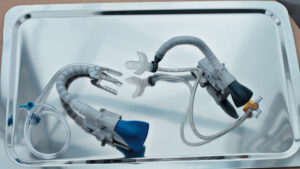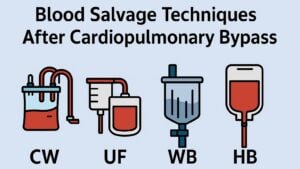Background: Ultrafiltration (UF) would enhance coagulation profiles by concentrating coagulation elements during cardiopulmonary bypass (CPB) for cardiac surgery.
Methods: We retrospectively reviewed electronic medical records of 75 patients who had undergone cardiac surgery with rotational thromboelastometry-based coagulation management in a university hospital and analyzed the UF-induced changes in the maximum clot firmness (MCF) of extrinsically activated test with tissue factor (EXTEM) during CPB in 30 patients.
Results: The median volume of filtered-free water was 1350 ml, and median hematocrit was significantly increased from 22.5% to 25.5%. As the primary measure, UF significantly increased the median MCF-EXTEM from 48.0 mm to 50.5 mm (P = 0.015, effect size r = 0.44). The area under the receiver operating characteristic curve pre-UF MCF-EXTEM for discrimination of any increase of MCF-EXTEM after applying UF was 0.89 (95% CI: 0.77‒1.00, P < 0.001), and its cut-off value was 50.5 mm (specificity of 81.8% and sensitivity of 84.2% in Youden’s J statistic). In the secondary analyses using the cut-off value, UF significantly increased the median MCF-EXTEM from 40.5 mm to 42.5 mm in 18 patients with pre-UF MCF-EXTEM ≤ 50.5 mm. However, it did not increase MCF-EXTEM in 12 patients with pre-UF MCF-EXTEM > 50.5 mm. There was a significant interaction between pre-UF MCF-EXTEM values and applying UF (P < 0.001 for the subgroup, P = 0.046 for UF, P = 0.003 for interaction).
Conclusions: Applying UF improved clot firmness, and the improvement was more pronounced when pre-UF MCF-EXTEM had been reduced during CPB.
Keywords: Blood coagulation; Cardiac surgery; Cardiopulmonary bypass; Retrospective study; Thromboelastometry; Ultrafiltration.







